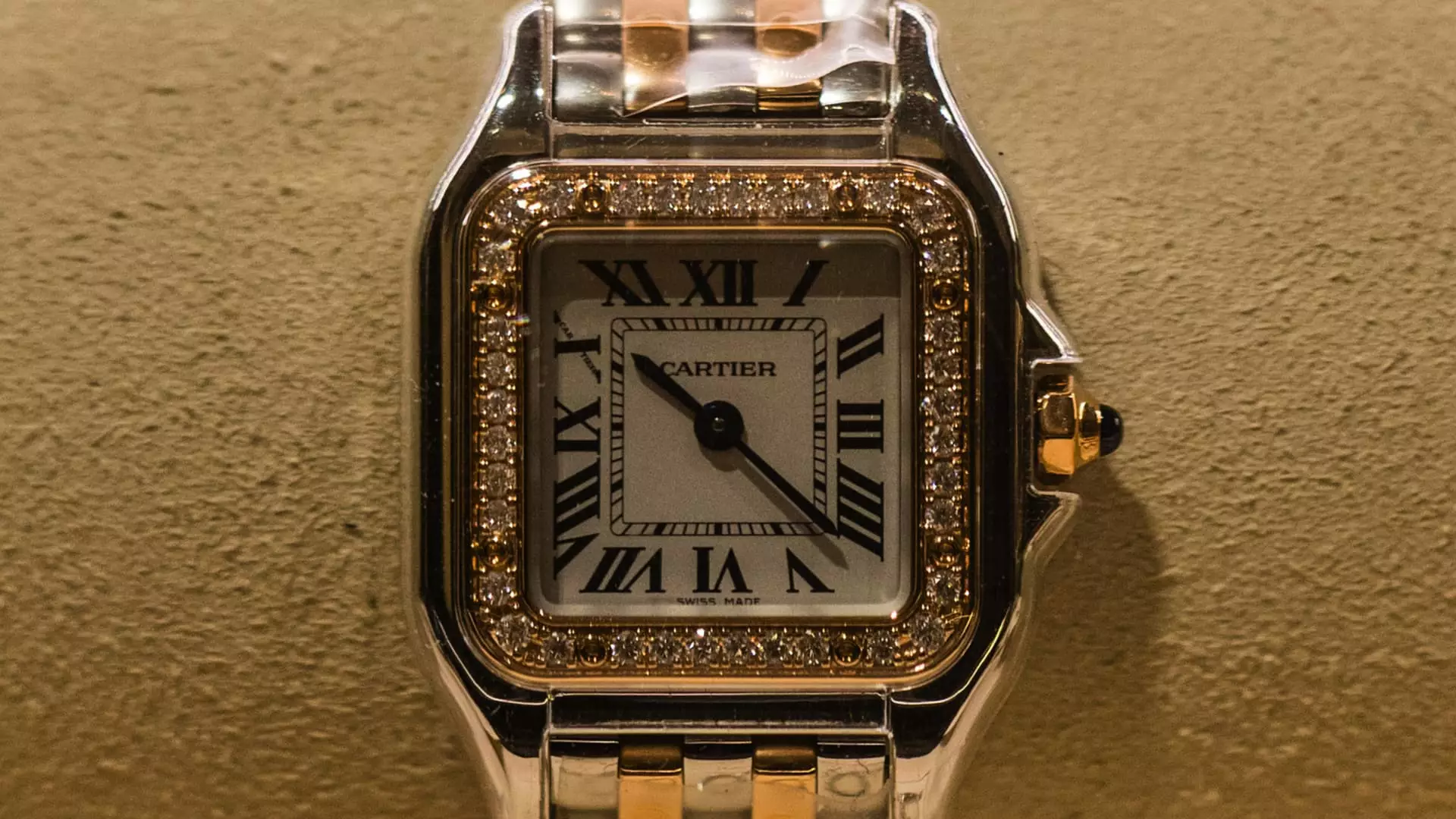Richemont, the luxurious umbrella under which illustrious brands like Cartier and Van Cleef & Arpels operate, reported a surprisingly robust fiscal fourth-quarter sales performance recently, raising eyebrows in an environment riddled with economic uncertainty. While a 7% increase in revenue to 5.17 billion euros suggests resilience, one must question whether this growth is sustainable or merely a blip in the overarching turmoil affecting the global economy.
Those trailing figures show that despite an uptick in sales, particularly from the prestigious Jewellery Maisons, a marked decline in the specialist watchmakers sector reflects deeper consumer sentiments that cannot be ignored. With sales faltering in the Asia-Pacific region—down by a staggering 23% in China—the vaunted luxury market’s health may be far more precarious than these numbers suggest. The airline of opulence may appear to fly high, yet beneath it lies turbulence that could threaten its flight path.
The Power of Wealth in a Shifting Landscape
Across various regions, Richemont’s sales have surged, but the impact of a struggling Chinese market casts a long shadow over this success. Japan’s spectacular 25% sales surge hints at a stronger local market buoyed by domestic spending and favorable exchange rates, complicating the narrative that all is well. It is crucial to dissect these figures with a critical eye; growth in one area can often mask a decline in vital marketplaces that form the backbone of luxury consumption.
The distressing reality is that the luxury sector is not immune to the broader economic implications spawned by global tensions. Analysis reveals that while the wealthiest individuals continue to indulge in significant spending, their behaviors are painted with caution. They may splurge on high-end jewelry or exquisite watches, but are they doing so from a position of confidence, or merely to hold onto social status in uncertain times? Consumption driven by societal pressures is as fragile as the image it attempts to project.
The Weight of External Factors
Ongoing economic factors such as fluctuating gold prices, regional tariffs, and foreign currency variations place a burden on luxury retailers like Richemont, whose pricing strategies are subjected to irreversible market influences often beyond their control. Bank of America has articulated these headwinds clearly, while also acknowledging the potential for the company’s strong pricing power to act as a counterbalance. It’s paramount, however, to scrutinize whether such strategies can remain effective amidst the fluctuations of a volatile marketplace.
The ever-looming threats of global economic unrest and trade tariffs contribute to a growing unease among consumers, which could potentially dampen spending on luxury goods. Though Richemont Chairman Johann Rupert insists that the group’s performance is robust, it is essential to challenge this assertion with the acknowledgment that agility and discipline may not be enough to navigate the treacherous waters ahead.
Reality Check for the Luxury Giants
Luxury brands have historically thrived on the allure of exclusivity and opulence, but as we gaze into the future, one must ponder the resilience of this perception in a world marked by economic turbulence. The luxury sector, adorned in finery, risks imperiling its reputation if it fails to address the complexities that accompany wealth distribution in a polarizing economic climate. What is needed is not just adaptability, but a more profound understanding of shifting consumer psychology—because the desire for luxury is far more intricately tied to societal sentiments than mere financial power.
As Richemont stands at this crossroads, the landscape ahead appears laden with both opportunities and treacherous pitfalls. In the quest for robust growth, one can only hope that the company navigates wisely—preserving its luxury allure while acknowledging the turbulent forces threatening its very foundation.

